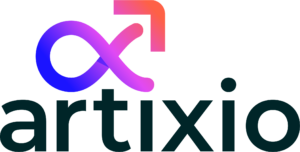Biosimilars are biologic medical products that are highly similar to an already approved reference biologic drug. They are designed to have no clinically meaningful differences in terms of safety, purity, and potency compared to the original biologic. They are developed once the patent and exclusivity period for a biologic drug expires, allowing other manufacturers to create their own versions.
Advantages of Biosimilars over Biologics
- Cost-Effective Alternatives: Biosimilars are typically less expensive than the original biologic drugs, offering cost savings to healthcare systems, insurers, and patients.
- Increased Access: Biosimilars can increase patient access to essential biologic therapies, especially in markets where high drug costs have been a barrier.
- Stimulating Competition: The introduction of biosimilars fosters competition in the biologics market, which can drive down prices for both the biosimilars and the original biologics.
Biologics Market Size and Growth
The global biosimilars market was valued at around $29 billion in 2023 and is expected to reach over $60 billion by 2030, growing at a compound annual growth rate (CAGR) of 10-15%. This growth is driven by the increasing number of biosimilar approvals and the expiration of patents for major biologics.
Key Industry Players and Products and their Pipeline
Pfizer:
Pfizer is a major player in the biosimilars market with a broad portfolio, particularly in oncology and autoimmune diseases.
Approved Biosimilars:
- Inflectra (infliximab-dyyb): A biosimilar to Remicade.
- Retacrit (epoetin alfa-epbx): A biosimilar to Epogen/Procrit.
- Zirabev (bevacizumab-bvzr): A biosimilar to Avastin.
Pipeline Drugs:
- Adalimumab (Humira) biosimilar.
- Trastuzumab (Herceptin) biosimilar.
Amgen:
Amgen is a leader in biotechnology and a pioneer in the biosimilars market, with a strong focus on oncology and immunology.
Approved Biosimilars:
- Mvasi (bevacizumab-awwb): A biosimilar to Avastin.
- Kanjinti (trastuzumab-anns): A biosimilar to Herceptin.
- Amjevita (adalimumab-atto): A biosimilar to Humira.
Pipeline Drugs:
- Rituximab (Rituxan) biosimilar.
- Infliximab (Remicade) biosimilar.
Novartis (Sandoz Division):
Sandoz, a division of Novartis, is one of the key players in the biosimilars market, with a wide range of products across multiple therapeutic areas.
Approved Biosimilars:
Zarxio (filgrastim-sndz): A biosimilar to Neupogen.
Erelzi (etanercept-szzs): A biosimilar to Enbrel.
Hyrimoz (adalimumab-adaz): A biosimilar to Humira.
Pipeline Drugs:
Pegfilgrastim (Neulasta) biosimilar.
Ranibizumab (Lucentis) biosimilar.
Biocon:
An Indian biopharmaceutical company, Biocon is a key player in the biosimilars market, particularly in emerging markets and increasingly in the global market.
Approved Biosimilars:
Ogivri (trastuzumab-dkst): A biosimilar to Herceptin.
Semglee (insulin glargine-yfgn): A biosimilar to Lantus.
Fulphila (pegfilgrastim-jmdb): A biosimilar to Neulasta.
Pipeline Drugs:
Bevacizumab (Avastin) biosimilar.
Adalimumab (Humira) biosimilar.
Samsung Bioepis:
Joint venture between Samsung Biologics and Biogen, Samsung Bioepis is a significant player in the biosimilars market, known for its strong pipeline and rapid development processes.
Approved Biosimilars:
Renflexis (infliximab-abda): A biosimilar to Remicade.
Ontruzant (trastuzumab): A biosimilar to Herceptin.
Hadlima (adalimumab-bwwd): A biosimilar to Humira.
Pipeline Drugs:
Eculizumab (Soliris) biosimilar.
Ranibizumab (Lucentis) biosimilar.
Celltrion:
A South Korean biopharmaceutical company, Celltrion is a pioneer in biosimilar development, particularly in monoclonal antibodies.
Approved Biosimilars:
Remsima (infliximab): A biosimilar to Remicade.
Truxima (rituximab-abbs): A biosimilar to Rituxan.
Herzuma (trastuzumab): A biosimilar to Herceptin.
Pipeline Drugs:
Aflibercept (Eylea) biosimilar.
Denosumab (Prolia/Xgeva) biosimilar.
Mylan (Viatris):
Mylan, now part of Viatris after its merger with Upjohn, a division of Pfizer, is a significant player in the biosimilars market, especially through its partnership with Biocon.
Approved Biosimilars:
Hulio (adalimumab-fkjp): A biosimilar to Humira.
Ogivri (trastuzumab-dkst): A biosimilar to Herceptin.
Fulphila (pegfilgrastim-jmdb): A biosimilar to Neulasta.
Pipeline:
Biosimilars for oncology and autoimmune diseases: Ongoing development of additional biosimilars to expand the therapeutic portfolio.
Teva Pharmaceuticals:
Teva is one of the largest generic drug manufacturers globally and has a growing presence in the biosimilars market.
Approved Biosimilars:
Truxima (rituximab-abbs): A biosimilar to Rituxan.
Herzuma (trastuzumab-pkrb): A biosimilar to Herceptin (in partnership with Celltrion).
Pipeline Drugs:
Denosumab (Prolia/Xgeva) biosimilar.
Ustekinumab (Stelara) biosimilar.
Boehringer Ingelheim:
Boehringer Ingelheim is a German pharmaceutical company that has made significant investments in biosimilars, especially in immunology.
Approved Biosimilars:
Cyltezo (adalimumab-adbm), a biosimilar to Humira. Their pipeline focuses on oncology and autoimmune diseases therapeutics.
Fresenius Kabi:
Fresenius Kabi is a global healthcare company that has entered the biosimilars market with a focus on oncology and autoimmune diseases.
Key Biosimilars: Idacio (adalimumab), a biosimilar to Humira.
FDA and EMA’s take on Regulation of Biosimilars
The U.S. Food and Drug Administration (FDA) and European Medicines Agency (EMA) plays a crucial role in regulating and approving biosimilars in the United States and Europe. These agencies have developed a specific framework and guidelines to ensure that biosimilars meet the necessary standards of safety, purity, and potency, similar to their reference biologic products.
The US FDA regulatory pathway for biosimilars
Biologics Price Competition and Innovation Act (BPCIA) of 2009: This act, part of the Affordable Care Act, established an abbreviated pathway for the approval of biosimilars in the U.S.
Section 351(k) Application: Biosimilars are approved through a 351(k) application, which requires the applicant to demonstrate that the biosimilar is highly similar to the reference product, with no clinically meaningful differences.
EMA regulatory pathway for biosimilars
Legal Basis: The legal framework for biosimilars in the European Union (EU) was established in 2004, making the EMA the first regulatory authority to create a pathway specifically for biosimilars. The process is governed by the Directive 2001/83/EC and Regulation (EC) No 726/2004.
Centralized Procedure: Biosimilars must be approved through the EMA’s centralized procedure, meaning a single application results in approval across all EU member states, as well as Norway, Iceland, and Liechtenstein.
Biosimilars are reshaping the biologics market, introducing cost-effective alternatives that are driving down prices and expanding patient access to critical therapies. While this is putting pressure on innovator biologic manufacturers, it is also fostering innovation, strategic collaborations, and global market opportunities.
Expert consultants at Artixio offer strategic guidance and actionable insights, helping you streamline your regulatory processes and accelerate product approvals. At Artixio, we ensure your products comply with the latest standards, empowering you to focus on innovation and growth. Contact Artixio today at info@artixio.com.
References
https://www.pfizer.com/science/drug-product-pipeline
https://www.amgenbiosimilars.com/products/our-pipeline
https://www.investors.sandoz.com/our-work/biopharmaceuticals/sandoz-biosimilar-pipeline/
https://www.biocon.com/businesses/biosimilars/our-work-in-biosimilars/
https://www.samsungbioepis.com/en/product/product02.do
https://www.celltrion.com/en-us/products/pipelines/biologics

